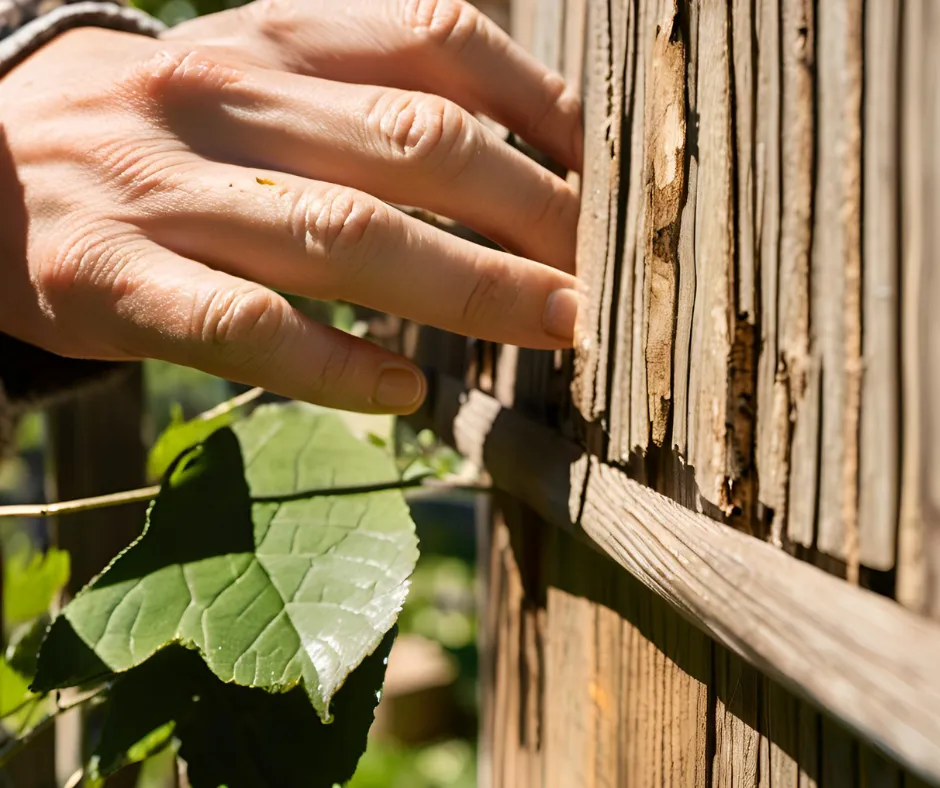
Preparing Your Fence for a Mild Winter in Hot Springs Village
Preparing Your Fence for a Mild Winter in Hot Springs Village
Winter in Central Arkansas may be mild, but your fence still deserves attention. A little seasonal care can go a long way in preserving its beauty and strength year-round.
As winter approaches, many people focus on preparing their homes for cooler temperatures, but what about their fences? While Hot Springs Village doesn’t experience the intense winter conditions of the Midwest, even mild winters can have an impact on fences. With proper care, you can protect your fence from rain, frost, and other seasonal effects, ensuring it stays strong and visually appealing. Here’s Tommy’s Custom Fencing’s comprehensive guide to preparing your fence for a mild winter in our unique climate.
1. Inspect for Minor Wear and Tear
Even minor issues can worsen over time, particularly when exposed to the winter elements, so starting with a thorough inspection is key.
Wood Fences: Check for loose nails, warping, or splinters. These issues can worsen with moisture exposure, and taking care of them now will save you repairs later. Tighten any loose screws or nails, and consider replacing any warped or damaged boards.
Vinyl Fences: Examine the fence for cracks, especially if it has seen a lot of sun exposure over the summer. Vinyl is generally low-maintenance, but small cracks can worsen with colder temperatures and rain. Repairing or replacing cracked sections can prevent further damage.
Metal Fences: Even a small amount of rust can spread over time, particularly in damp weather. Use a rust-resistant primer or sealant on any rusty areas to prevent further corrosion. If possible, lightly sand down any rusted spots before applying primer for a smooth finish.

2. Clean Away Summer and Fall Buildup
Over the course of summer and fall, fences accumulate dirt, algae, and other debris. Clearing this off not only helps keep your fence looking great but also reduces moisture buildup.
Wood and Vinyl Fences: Clean both types with mild soap and water, using a brush to scrub gently. Avoid pressure washing wooden fences, as it can damage the wood fibers. A garden hose can be useful to rinse away dirt and soap after scrubbing.
Metal Fences: Metal fences also benefit from a good cleaning, as debris can trap moisture against the metal, accelerating rust. After scrubbing, you might even consider applying a light wax coating to metal fences for extra weather protection.
Bonus Tip: Consider adding a fence-safe mold and mildew inhibitor to your cleaning solution, especially for areas with heavy vegetation or shade, where mildew is more likely to grow.
3. Apply a Light Protective Coating for Extra Defense
Since Hot Springs Village winters are milder, a full weatherproofing treatment isn’t always necessary. However, applying a light protective coating to your fence can add an extra layer of defense.
Wood Fences: Apply a light sealant or weatherproof stain to shield the wood from rain and humidity. This will help repel moisture, extending the lifespan of the wood. Apply sealant on a day when temperatures are above 50°F to ensure it cures properly.
Metal Fences: For metal fences, a rust-resistant paint or a clear protective coat can keep rust at bay. If you’ve noticed any chipping or flaking paint, now is a good time to touch those up, as they can expose the metal to moisture.
Vinyl Fences: Vinyl fences are low-maintenance, but you can still apply a vinyl protectant spray to help repel dirt and moisture. This can also help maintain the vinyl’s original color and prevent fading.
4. Trim Nearby Vegetation and Remove Leaves
In a milder climate like Hot Springs Village, winter storms are less of a concern, but heavy branches, vines, and wet leaves can still put pressure on your fence. Wet leaves in particular can hold moisture, which leads to rot, mold, or mildew.
Trim back overgrown branches that could fall onto your fence or put pressure on it during windy days.
Clear away leaves and plant debris from the base of your fence. These can trap moisture and create a damp environment, which is especially damaging to wood.
5. Improve Drainage Around the Fence
Although snow isn’t a major concern in Hot Springs Village, the occasional rainfall can create pooling water, which can damage the base of your fence over time. Improving the drainage around your fence can prevent water buildup, which is especially important for wooden posts that can rot with prolonged exposure to moisture.
Check the ground around your fence for any areas where water tends to pool. Consider adding a layer of gravel or adjusting the soil grade to help direct water away from the fence line.
Keep the base of the fence clear of any obstructions, such as mulch or leaves, that could hold moisture near the fence.
Bonus Tip: For wood and metal fences, consider using post caps to cover the tops of fence posts. These caps prevent water from seeping into the post, which is especially useful for protecting wood posts from rot.

6. Consider a Mild Weather Protection Plan
While extreme measures aren’t necessary in Hot Springs Village, having a mild weather protection plan can still be beneficial. This can be as simple as setting reminders to periodically check the fence and make sure it’s free from excess moisture or mildew.
Monthly Check-Ins: Once a month, especially during the wetter months, do a quick inspection to ensure that the fence isn’t showing signs of mildew, rot, or other issues.
Quick Cleanups: If you notice any mud or dirt splatters from rain, give your fence a quick rinse with a garden hose. This prevents buildup and keeps the fence looking fresh all winter long.
Conclusion: Small Steps for Year-Round Fence Care
Taking these simple precautions in Hot Springs Village’s mild winter climate can make a big difference in the longevity and appearance of your fence. By dedicating a little time to seasonal maintenance, you can help ensure your fence remains strong, secure, and beautiful, no matter the season. For more guidance or hands-on help, contact Tommy's Custom Fencing. We’re here to provide expert care tailored to the unique needs of our local climate.
